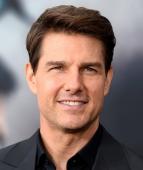MASS UNREST IN IRAQ
At least 97 killed; 4000 wounded
Tensions high as Shia cleric Sadr says govt should resign; Baghdad curfew lifted
Iraqi protesters take part in a demonstration against state corruption, failing public services, and unemployment, in the Iraqi capital Baghdad’s central Khellani Square on Friday. Photo: AFP
Afp, Baghdad
A curfew was lifted in Baghdad yesterday following days of protests which have left nearly 100 dead, but tensions remained after firebrand cleric Moqtada Sadr demanded the government quit.
The largely spontaneous protests over chronic unemployment and poor public services that erupted in the capital on Tuesday have escalated into a broader movement demanding an end to official corruption and a change of government.
At least 93 people have been killed and nearly 4,000 wounded, as protests spread to cities across the south, the parliamentary human rights commission said.
Sadr threw his weight behind the demonstrations on Friday with a call for the resignation of Prime Minister Adel Abdel Mahdi.
A protester take cover behind a concrete block during the clashes. Photo: AFP
His movement has the power and organisation to bring large numbers of supporters onto the streets, but at the risk of alienating many of those who have taken to the streets in recent days to express their rejection of all of Iraq’s feuding political factions.
His bloc is the largest in parliament, and his intervention sets the scene for a possible showdown with the Speaker, who has made his own bid to make political capital out of the protests.
Speaker Mohammad al-Halbusi was due to convene a session of parliament session later yesterday to discuss job creation and social welfare schemes, after he too extended a hand to the protesters, saying: “Your voice is being heard.”
In Baghdad yesterday, municipal workers were out and about cleaning up the rubbish burned by protesters in recent days.
Shoppers trickled back onto the streets to buy vegetables and other perishable goods the price of which has more than doubled since the deadly protests started.
With the daytime curfew in place since Thursday lifted, demonstrators began gathering near the emblematic Tahrir Square in the morning although many main thoroughfares remained shut and an internet blackout was still in force.
The mainly young, male protesters have insisted their movement is not linked to any party or religious establishment and have scoffed at recent overtures by politicians.
“These men don’t represent us. We don’t want parties anymore. We don’t want anyone to speak in our name,” said one protester late Friday.
Abu Salah, a 70-year-old resident of Baghdad with wispy white hair and a matching beard, said the streets would be full until Iraqis saw real change.
“If living conditions don’t improve, the protests will come back even worse,” he told AFP.
The protests have presented the biggest challenge yet to the Iraqi premier, who came to power a year ago as a consensus candidate promising reforms but whose response to the demonstrations has been seen as tepid.
“Abdel Mahdi should have come forward with decisive changes, like the sacking of leading politicians accused of corruption,” said Iraqi analyst Sarmad al-Bayati.
Political and religious rifts run deep in Iraq, and protests are typically called for by party or sect -- making the last five days exceptional, said Fanar Haddad an expert at Singapore University’s Middle East Institute.
Torrent Invites! Buy, Trade, Sell Or Find Free Invites, For EVERY Private Tracker! HDBits.org, BTN, PTP, MTV, Empornium, Orpheus, Bibliotik, RED, IPT, TL, PHD etc!
Results 1 to 1 of 1
Thread: At least 97 killed; 4000 wounded
-
10-06-2019 #1Be A Man Touch The Sky




















- Reputation Points
- 431433
- Reputation Power
- 100
- Join Date
- Mar 2018
- Posts
- 24,214
- Time Online
- 246 d 9 h 20 m
- Avg. Time Online
- 2 h 40 m
- Mentioned
- 2351 Post(s)
- Quoted
- 452 Post(s)
- Liked
- 5104 times
- Feedbacks
- 521 (100%)
At least 97 killed; 4000 wounded
Sweet Dream Nightmare Come Together
We are come from different Worlds
Who Will Really Care !!
Day Went Night Comes
Earth face this
untill the judgement day comes forever
People Here People There
Does Change The Clock
We Want To Be Damn Happy
Which Is Really the fact of this clock


= > NIL
How To Add Feedback Tutorial
TorrentInvites.org Forum Rules
How To Make Ratio Proof, Speedtest Proof or Seedbox Proof


 LinkBack URL
LinkBack URL About LinkBacks
About LinkBacks




 Reply With Quote
Reply With Quote





